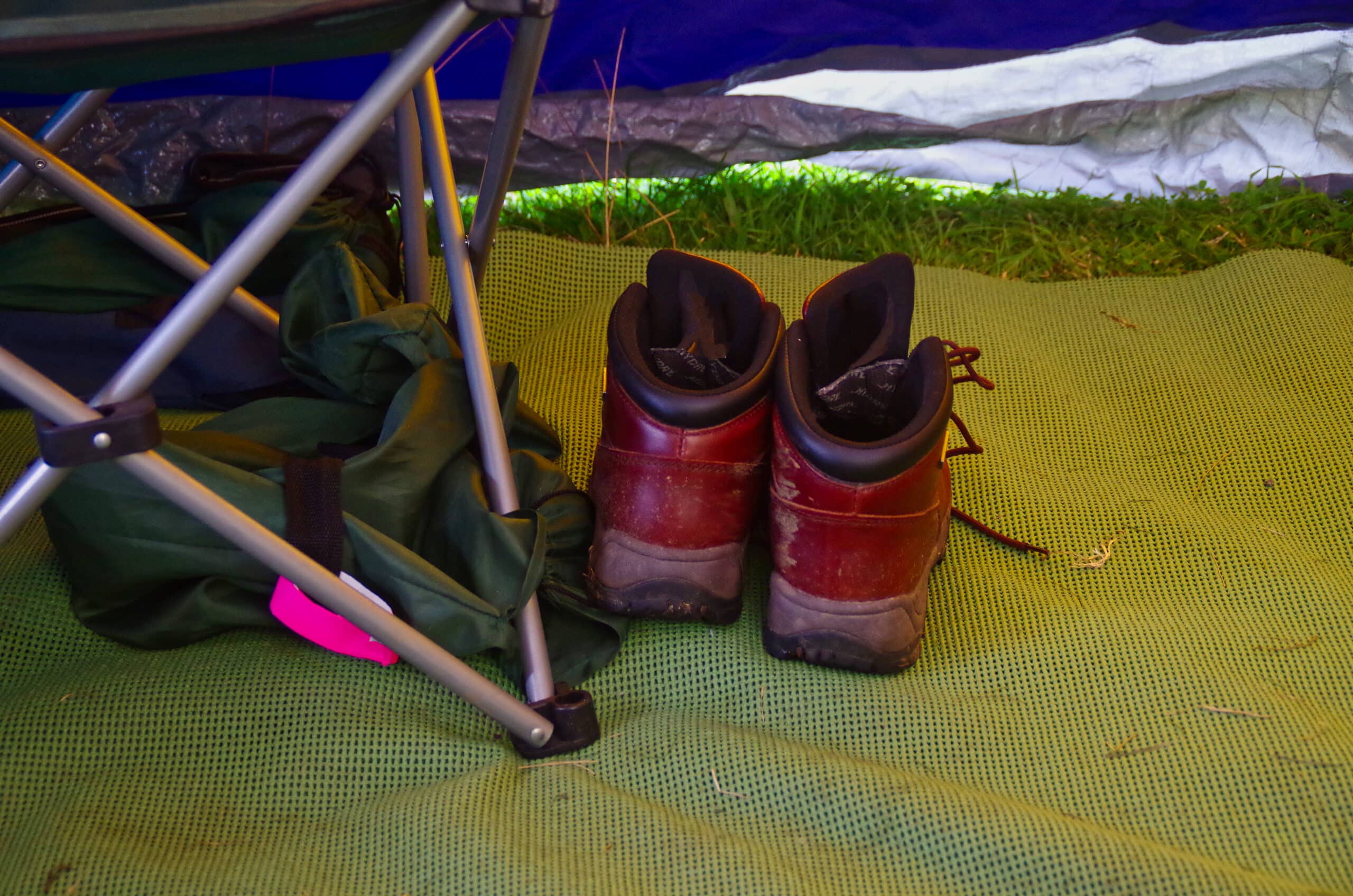Are Groundsheets Necessary? & Why You Should Be Using Them
Some of the links below are affiliate links. As an Amazon Associate, I earn from qualifying purchases. This means that, at zero cost to you, I will earn an affiliate commission if you click through the link and finalize a purchase.
Tents naturally come with a groundsheet which can be loose or sewn into the inner tent. If you have a tent where the groundsheet comes up separate you might be wondering if it is necessary.
Groundsheets are necessary if you are planning to stay warm and dry during your trip, the is especially important if you are camping in a tent. If you are using a groundsheet in an awning you may find them unnecessary and prefer to use the awning without.
In this article we are going to talk about what groundsheets do, are they neseccary and what they are good for.
What Does Groundsheet Do?
The primary function of a groundsheet is to protect your tent’s floor and keep your tent clean.
It will protect you from abrasive objects such as twigs, pebbles, roots, and rocks. Although this might not look serious, however repetitious abrasion on a spot can wear the tent floor fabric.
Additionally, it keeps your tent clean from mud and tree sap.
Groundsheets are also a great way of keeping heat within a tent especially in the evening when temperatures naturally drop and help prevent water from coming in from morning dew and rainfall. They are a great way of protecting yourself and your belongings while in the outdoors.
Is A Groundsheet Necessary?
While Groundsheet might not be a compulsory item for some. Taking groundsheets along for camping is necessary based on personal preferences and other factors like terrain.
So is it necessary? Well, you can do without it, it is all based on your preferences.
While there is no rule to say you should or shouldn’t use a groundsheet when camping it is advised. Some tents come with the groundsheet sewn in to make putting up a tent easier and more effiecient along with more watertight and warmer.
If you are looking at groudnsheets within your awning you may find that you do not need one. This is where you might find a groundsheeet unneseccary as the ground is likely to stay dry under the awning anyway.
I would personaly look at using a groundsheet in an awning if you plan to use it as an extension of your living space from your motorhome, you have animals that will be staying within the area or you are wanting to keep things clean and dry from the grass or natural flooring.
Advantages Of Groundsheets
- Increase the Tents’ Lifetime
The major use of a groundsheet is for the protection of the tent floor.
If the floor of your tent is not protected well, it will deteriorate faster than other parts of the tent.
Your tents floor sees a lot of abuse and all this wears down and damages the fabric quickly.
Replacing a new tent is more expensive than replacing a groundsheet.
Protecting your tent floor will lead to a longer life for your tent and save you money in the long run.
The more you use your tent, the higher the likelihood of wearing out, the use of groundsheet will protect your tent from wear and tear by protecting the vulnerable parts of your tent
- Barrier from bugs
There are always enough bugs outside, and you need to stop them from getting into your tent.
The use of Groundsheets will prevent bed bugs from getting into your tents.
- Cushion and Insulation
Most heat is lost to the ground while camping, having a groundsheet will create an extra layer and reduce the amount of heat loss to the ground.
Using a Groundsheet will add a smidge of extra insulation from the ground and also gives extra cushion.
You lose most heat to the ground while camping and it is almost impossible to get when all the heat is escaping.
The use of groundsheets will help keep you nice and cozy.
Disadvantages of Groundsheets
As much as there are benefits of using Groundsheets, there are also downsides to it.
- Extra Weight
Groundsheets will always add a bit of weight to your pack, irrespective of the type.
While minimalist groundsheets might be as light as 2 ounces, some custom groundsheets made by tent manufacturers might weigh up to 225 grams. Although you might decide to without groundsheets if you are an ultralight hiker.
- Cost
Many tents have a groundsheet designed to work with them, and most manufacturers do not include groundsheets with tents, you have to buy them separately.
While there are cheap ways to make your groundsheets, most groundsheets are within the range of $30-$50.
- Extra Bulk
Groundsheets take up considerable space in your pack. Some groundsheets might take a couple of liters.
- Not suitable for some terrain
As we all know some terrains are harder on rent floors than others.
While terrains like a sandy beach or soft grassy fields won’t cause damage and you might even do without a groundsheet.
Extra caution has to be taken when camping in the mountains or forests.
If not necessary, you’d be better off not using groundsheets in these conditions.
Thorns, twigs, or rocky ground can puncture your tent floor easily.
Why You Should Be Using Groundsheets
Groundsheets to some is an extra item to take along for camping. However, not having a groundsheet can affect your camping experience. Below are some of the reasons you have to use groundsheets.
- Waterproof
If there is rainfall while camping, it can drench the floor of the forest and wet your tent when you set up on top of it.
The extra layer of a groundsheet will act as a shield and will stop rain from seeping upward into your tent and drenching your properties- clothes, sleeping bags, etc.
Having a groundsheet will save you the stress of drying out the morning dew before packing up your tent.
The Groundsheet will take up the dampness and prevent mildew and mold from building up in your tent.
Additionally, it is easier to clean and wipe your groundsheet compared to cleaning the whole tent.
- Easy Positioning
Sometimes getting a good tent site can be hard. Even after getting a good space, you might discover your tent won’t fit in or too even.
Although there are minimalist groundsheets that are easy to drape on the ground and size out your site
- Takes care of the Abrasive and Messy Stuff
Although clearing the site before pitching your tent reduces the probability of having a mishap.
However, there would be little abrasions here and there from little twigs, pebbles, etc.
Having a groundsheet will take care of all the abrasive stuff.
Also, it is normal for our gear to become dirty when taken outside however if the bottom of your tent has tree sap all over it can become a problematic thing.
Groundsheets will take the burnt of the sap, keeping your tent spotless for a longer period.

